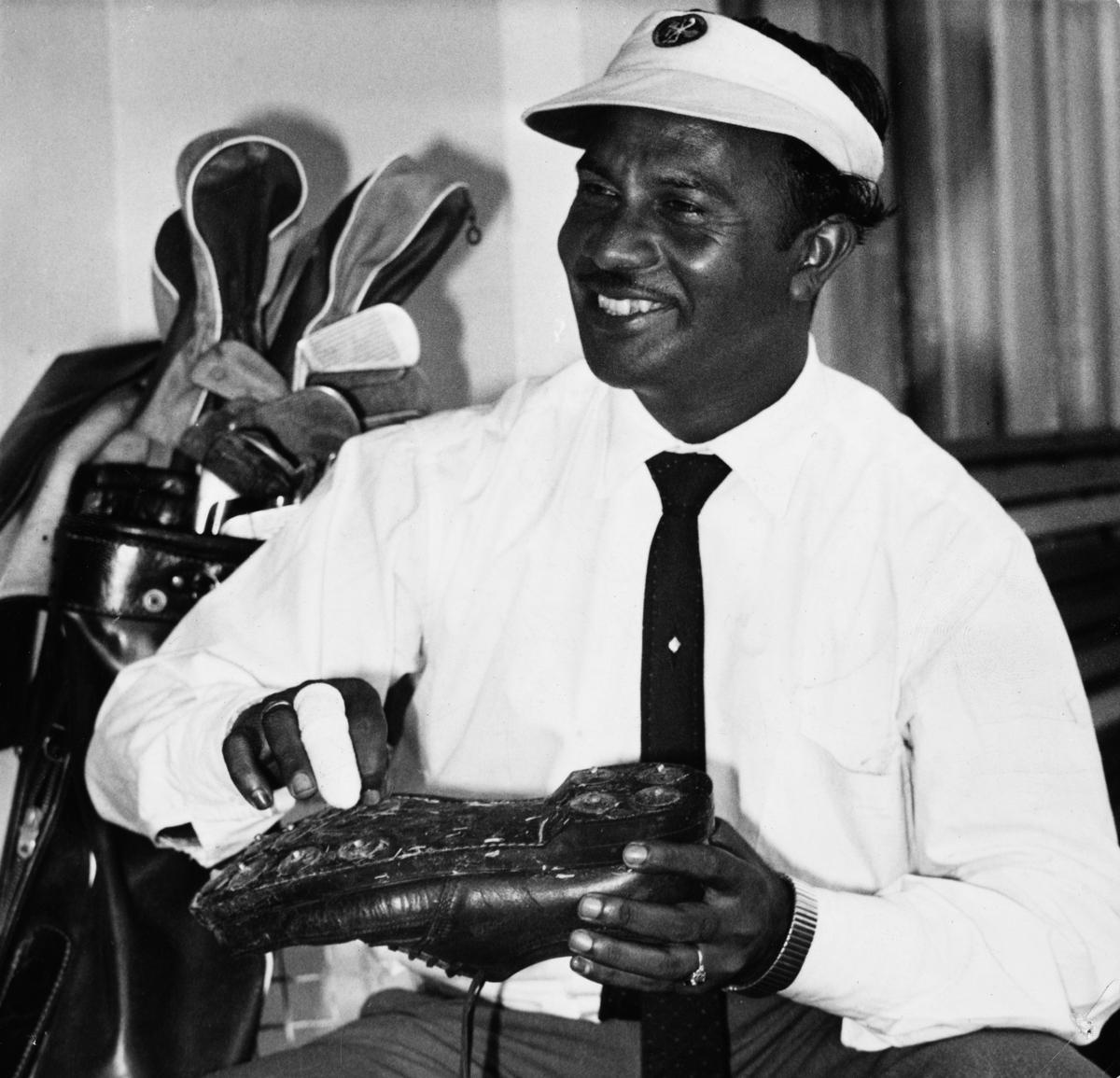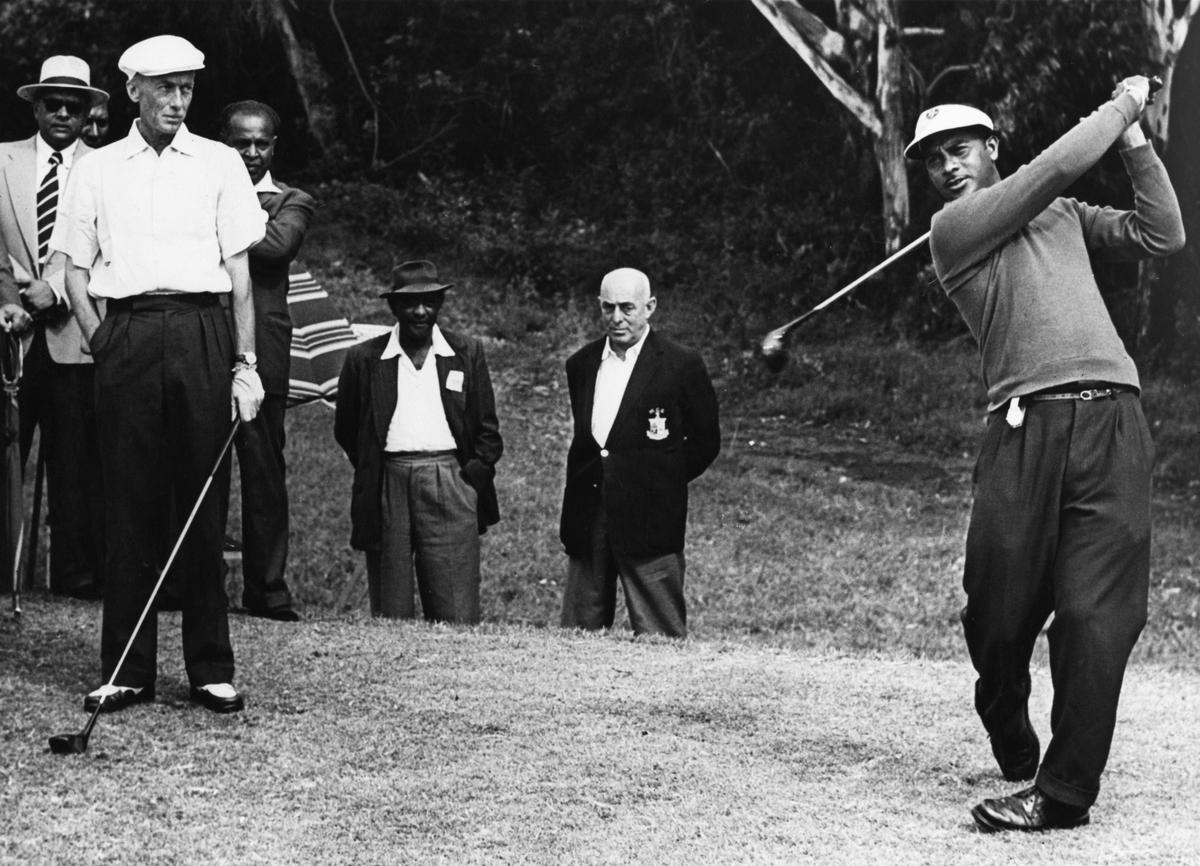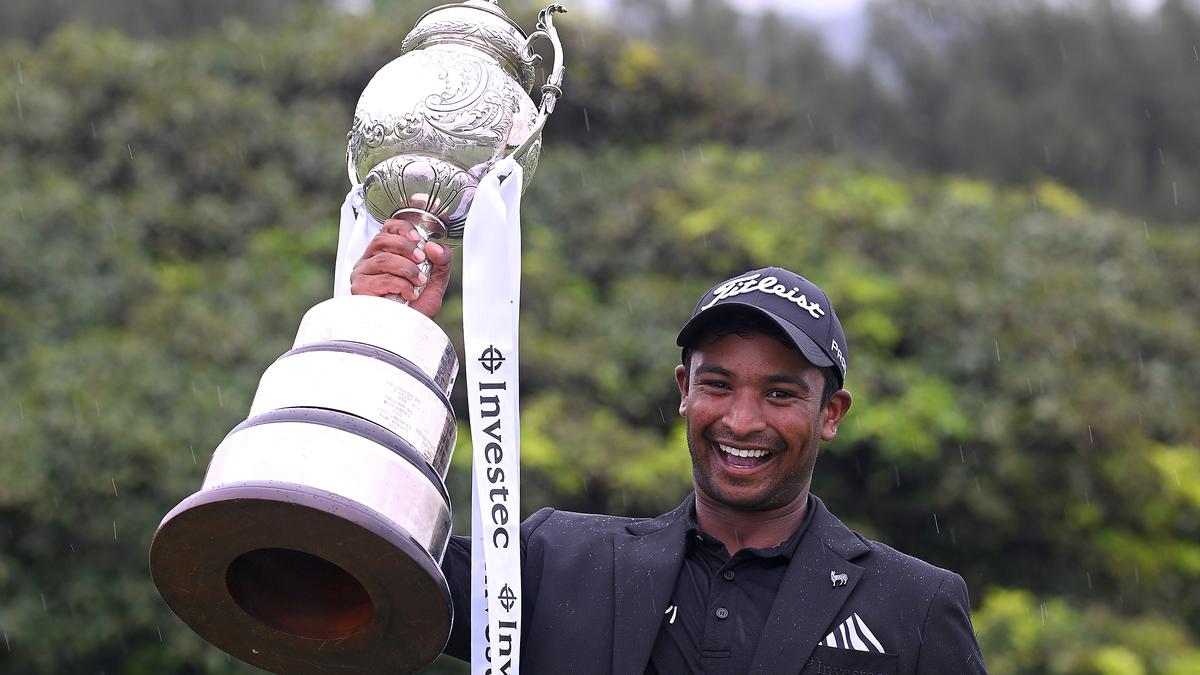Dylan Naidoo triumphs at SA Open 62 years after Indian-origin Papaw Sewgolum’s victory under apartheid law
Dylan Naidoo’s victory in the South African Open on Sunday was the first win by a player of Indian heritage in the tournament and achieved on the course where one of the uglier incidents in apartheid sport played out decades earlier.
The 27-year-old Naidoo took the biggest prize in South African golf in a playoff against Laurie Canter of England at the Durban Country Club, where another South African golfer of Indian ethnicity once had to collect his prize in the rain because racial laws meant he was not allowed in the club house.
Papaw Sewgolum won the Natal Open on the same course 62 years ago after overcoming a series of humiliations.

Portrait of Sewsunker “Papwa” Sewgolum (1928-1978) from South Africa of ethnic Indian cleans his golf shoes before competing in the 1961 South African Open Golf tournament on 20th March 1961 at the East London Golf Club in Durban, South Africa. In 1961, Sewsunker Sewgolum was the first non-white person to take part in the South African Open finishing the tournament in second place. In 1963 he was the first non-white person to win an event on the South Africa circuit, winning the Natal Open.
| Photo Credit:
Getty Images
Portrait of Sewsunker “Papwa” Sewgolum (1928-1978) from South Africa of ethnic Indian cleans his golf shoes before competing in the 1961 South African Open Golf tournament on 20th March 1961 at the East London Golf Club in Durban, South Africa. In 1961, Sewsunker Sewgolum was the first non-white person to take part in the South African Open finishing the tournament in second place. In 1963 he was the first non-white person to win an event on the South Africa circuit, winning the Natal Open.
| Photo Credit:
Getty Images
He had learnt the sport as caddy at the club, one of the country’s most famous courses, after being given a set of second-hand clubs and allowed to play on a Monday along with the other caddies.
ALSO READ | Olympic champion Lydia Ko wins Women’s World Championship on her 11th attempt
Such was his obvious talent that a benefactor sponsored him to play in Europe, where he got an entry to The British Open and won the 1959 Dutch Open. He was prohibited from playing professionally in South Africa, however, where apartheid laws allowed no mixing of race groups in sporting arenas.
After pressure from members, he was allowed to enter the 1963 Natal Open at the Durban Country Club under strict conditions, forced to change in a minivan and eat his meals with the Black caddies as he was not allowed into the clubhouse, which was for white people only.
When he won against the odds, the prize giving ceremony that should have taken place inside because of the poor weather was conducted outside in the rain.
Sewgolum, who died aged 48 in 1978 from ill-health, was a sporting hero among South Africa’s large Indian population, who were treated as second-class citizens in the apartheid era.
Indians first arrived as labourers during the late 1800s and Durban is one the largest ethnically Indian-populated cities outside of India.

Sewsunker “Papwa” Sewgolum (1928-1978) from South Africa of ethnic Indian origin watches his drive shot off the 1st tee during the 1961 South African Open Golf tournament on 20th March 1961 at the East London Golf Club in Durban, South Africa.
| Photo Credit:
Getty Images
Sewsunker “Papwa” Sewgolum (1928-1978) from South Africa of ethnic Indian origin watches his drive shot off the 1st tee during the 1961 South African Open Golf tournament on 20th March 1961 at the East London Golf Club in Durban, South Africa.
| Photo Credit:
Getty Images
Naidoo enjoyed extensive support at the course.
“This is a special moment for me, it’s a special moment for everybody here in Durban – it’s overwhelming,” he said.
“I said yesterday it felt like I was Tiger Woods. There were so many people following me and that gave me energy. I can’t thank everyone enough for coming out.”
Naidoo’s triumph was made more poignant by the fact he is a graduate of a development programme which carries Sewgolum’s name and is aimed at helping young golfers from disadvantaged communities reach the professional ranks.



